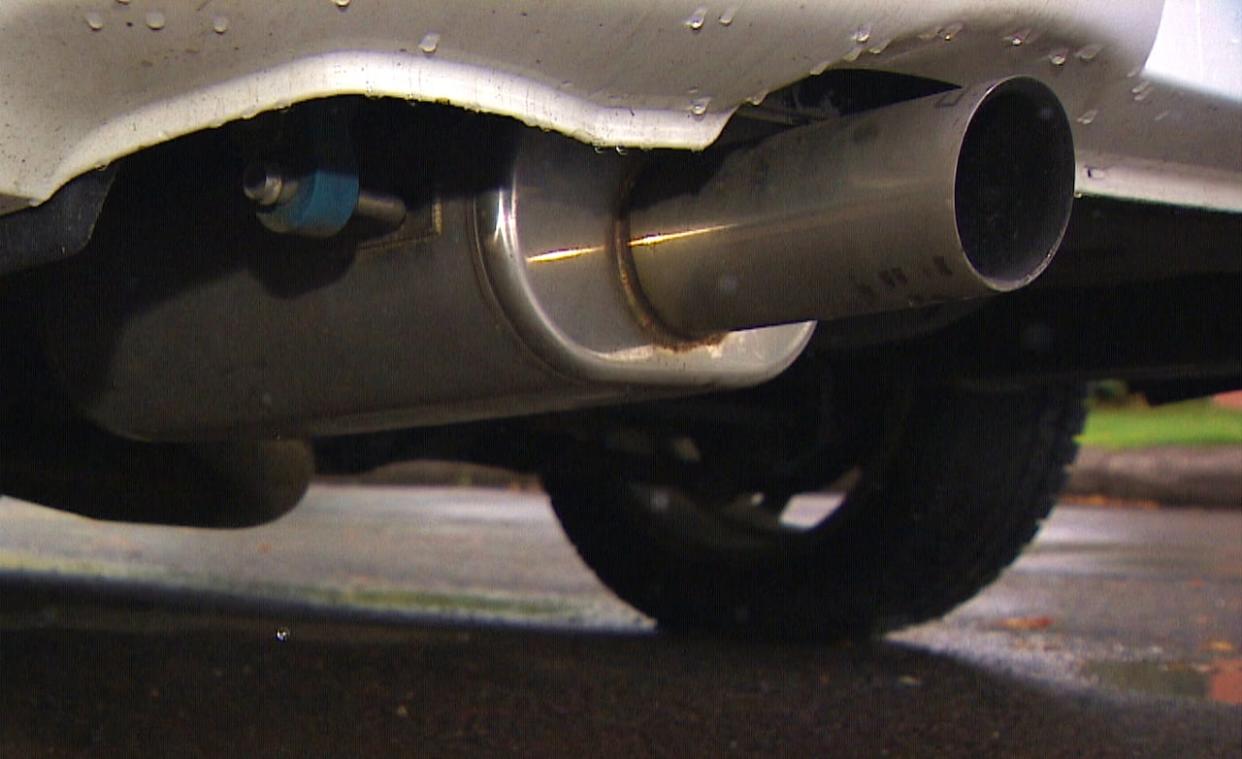Calgary officials gathering noise data ahead of 2025 enforcement plan

Before the City of Calgary begins enforcing rules about excessive vehicle noise next year, it first wants to determine the hot spots for the problem.
So it's started putting out 40 acoustic monitoring devices. The small boxes are about the size of an adult's hand and each contains a microphone.
The city says the devices aren't recording anything. But they are measuring noise levels and regularly transmitting the information to a central database.
A senior information technology engineer with the City of Calgary, Colin Adderley, said the devices are only noting when they detect loud noises.
"It listens for loud events. So it can't understand a specific person. It doesn't have a signature of your voice," said Adderley.
"All it does is basically gives us the feedback of when a loud event passes a certain (decibel) threshold."
He said the first devices are now in use on 17th Avenue S.W.
Devices deployed on 17th Ave.
The busy commercial street has seen — and heard — its share of loud cars and motorcycles over the years, as any patio patron can attest.
Adderley said the city did complete a privacy impact assessment for the deployment of the devices and that was filed with the Office of the Information and Privacy Commissioner of Alberta.
The city will not provide the specific locations of the devices nor any pictures of them for security reasons.
LISTEN | Prof. Julie Aitken Schermer talks about the personalities of loud car lovers:
The battery operated units will regularly transmit data about noise levels to the city via a long-range low power wireless area network, or what's known as a LoRaWAN.
Adderley said gathering this data will help officials understand where noise is a problem in Calgary and the data will guide enforcement.
"By understanding the problem better and the number of events at each location, it allows us better use of how we deploy our staff to collaborate and help solve this problem," he said.
Enforcement coming
Last November, council approved funding for the creation of new traffic safety teams.
That's a collaboration between city peace officers and the Calgary Police Service. They'll start working this fall by focusing on road safety around schools, but their work will expand in the spring of 2025 to include excessive vehicle noise.
Ward 8 Coun. Courtney Walcott said he supports the gathering of data ahead of the enforcement because that will allow for a more targeted approach, concentrating on problem areas.
He said most people tend to experience a loud car or motorcycle as a short term nuisance. But the collecting of data will identify larger issues in terms of noise levels and when that tends to occur in specific locations.
"This data will tell us say, OK, look maybe you live a block off of that street. You live on that street and you have to hear this every night. And that data will tell us what the frequency is and maybe we can start considering what the impacts of that are," said Walcott.
He also pointed out that collecting data about noise should help confirm or refute years of anecdotal complaints of problems in some parts of town.
As for those with loud vehicles, Walcott said staying within legal limits means there's nothing to fear in this data being gathered.
"If it's quiet, we're not even collecting data. It only matters if you're revving that engine beyond a certain point."


